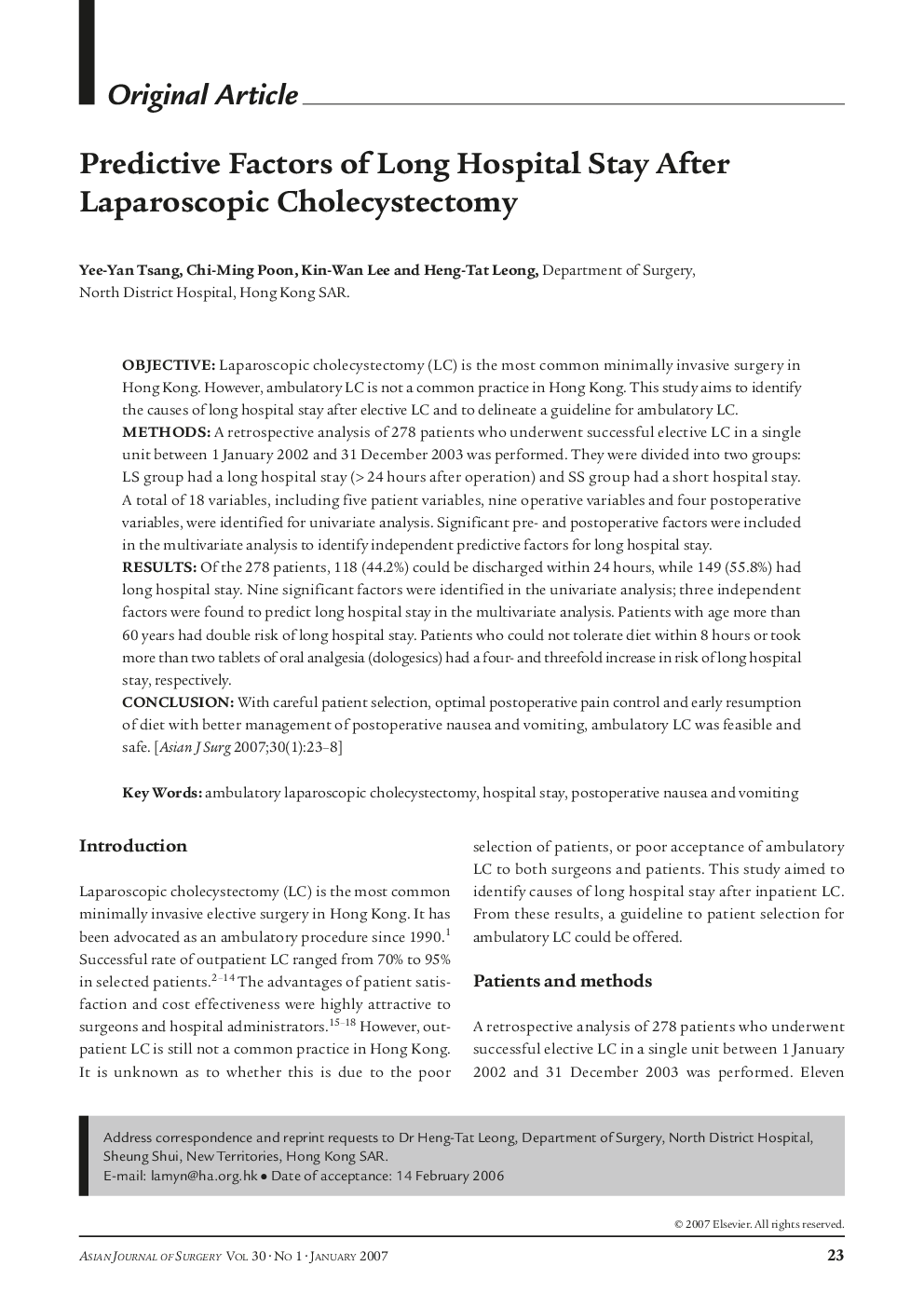| Article ID | Journal | Published Year | Pages | File Type |
|---|---|---|---|---|
| 4282962 | Asian Journal of Surgery | 2007 | 6 Pages |
ObjectiveLaparoscopic cholecystectomy (LC) is the most common minimally invasive surgery in Hong Kong. However, ambulatory LC is not a common practice in Hong Kong. This study aims to identify the causes of long hospital stay after elective LC and to delineate a guideline for ambulatory LC.MethodsA retrospective analysis of 278 patients who underwent successful elective LC in a single unit between 1 January 2002 and 31 December 2003 was performed. They were divided into two groups: LS group had a long hospital stay (> 24 hours after operation) and SS group had a short hospital stay. A total of 18 variables, including five patient variables, nine operative variables and four postoperative variables, were identified for univariate analysis. Significant pre- and postoperative factors were included in the multivariate analysis to identify independent predictive factors for long hospital stay.ResultsOf the 278 patients, 118 (44.2%) could be discharged within 24 hours, while 149 (55.8%) had long hospital stay. Nine significant factors were identified in the univariate analysis; three independent factors were found to predict long hospital stay in the multivariate analysis. Patients with age more than 60 years had double risk of long hospital stay. Patients who could not tolerate diet within 8 hours or took more than two tablets of oral analgesia (dologesics) had a four- and threefold increase in risk of long hospital stay, respectively.ConclusionWith careful patient selection, optimal postoperative pain control and early resumption of diet with better management of postoperative nausea and vomiting, ambulatory LC was feasible and safe.
